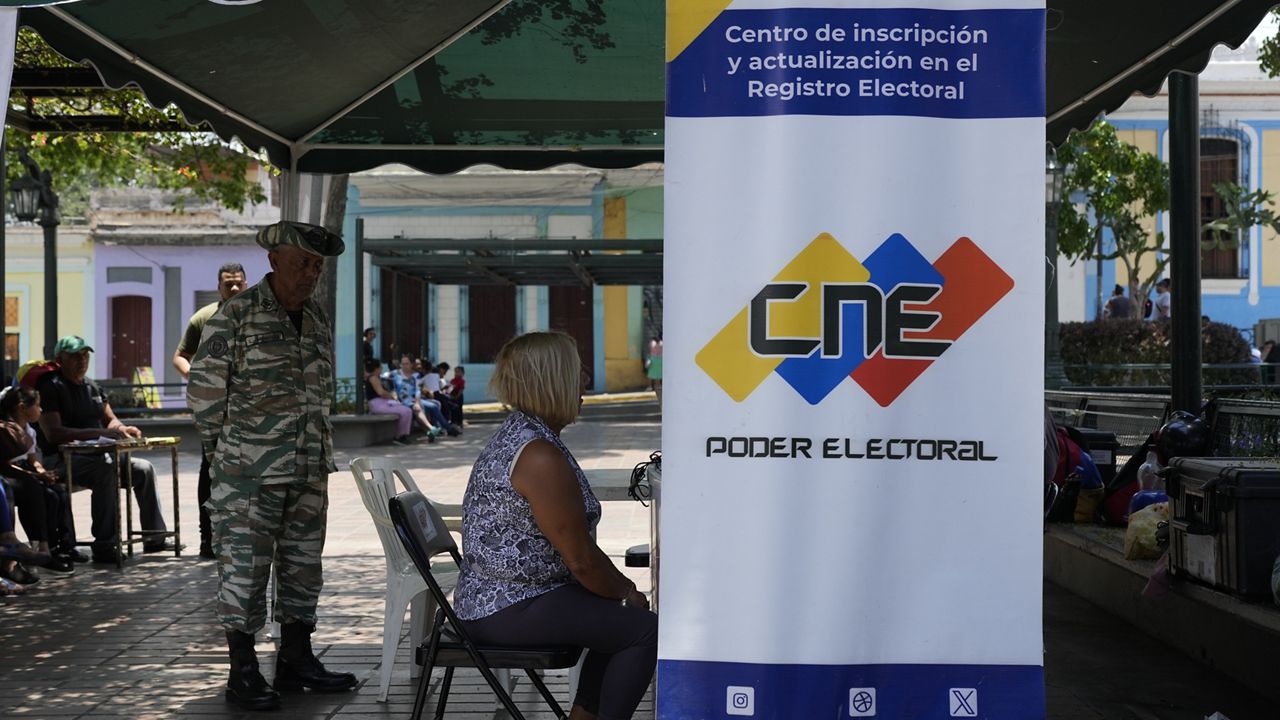The Biden administration announced on Wednesday that it will allow the sanctions relief it placed on Venezuela’s oil and gas sectors to expire after determining that President Nicolás Maduro has not fully lived up to an agreement on free and fair elections in the Latin country.
Senior administration officials told reporters on a call Wednesday ahead of the announcement that the U.S. was reimposing the sanctions on the OPEC member country’s vital oil industry one day before the six-month general license that enabled the relief was set to lapse.
The U.S. eased sanctions in October of last year after the Venezuelan government reached an agreement in Barbados over conditions for elections with opposition parties.
“We have been consistent in our public messaging and our private messaging that maintaining the sanctions relief in Venezuela's oil and gas sector depended on Maduro’s commitment to uphold the Barbados Agreement,” one senior administration official emphasized on the call Wednesday.
While Venezuela did meet some commitments, the official said, it has “fallen short” on others.
“The areas in which they have fallen short include the disqualification of candidates and parties on technicalities and what we see as a continued pattern of harassment and repression against opposition figures and civil society,” an official said,
Officials said the administration is particularly concerned about Maduro not allowing the leading opposition candidate, Maria Karina Machado, nor her designated alternative candidate to run against him in this summer’s election.
“Maduro and his representatives have not followed through with one of the most critical commitments,” the official said. Requiring Maduro to lift bans that have blocked his opposition from running and seeking to oust him was a significant part of October's agreement in Barbados.
State Department Spokesperson Matthew Miller told reporters during a briefing on Tuesday that Venezuela has upheld agreements to set an election timetable and invite international groups to observe the election. European Union officials observed Venezuela’s 2021 election, for instance, on an observation mission.
Administration officials on the call were quick to note that Wednesday’s announcement should not be viewed as a “final decision” or fixed determination that Venezuela does not have the ability to hold “competitive and inclusive” elections. The official added the administration will continue to engage with Maduro’s government as well as opposition figures.
The U.S. will allow for a 45-day wind down window in which any activity operating under the previous general science must conclude by the end of May. Officials said the administration can still issue specific licenses related to oil and gas to individual companies on a case-by-case basis.
Asked on Tuesday whether the administration is concerned that the reimposed sanctions could lead to an increase in Venezuelan migrants seeking to enter the U.S., Miller said that “irregular migration is something we continue to work on with our partners in the region.” He added he did not want to go any further at the time because no decision had been announced.



